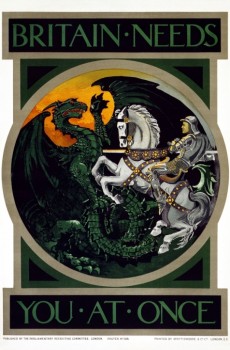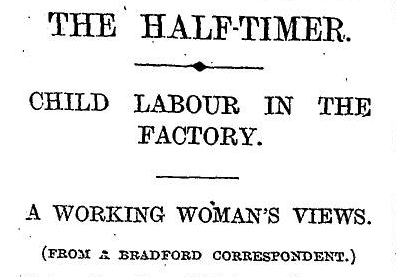We are developing the social individualist meta-context for the future. From the very serious to the extremely frivolous... lets see what is on the mind of the Samizdata people.
Samizdata, derived from Samizdat /n. - a system of clandestine publication of banned literature in the USSR [Russ.,= self-publishing house]
|
The other day I wrote a post about the plight of the Bushmen living in the Kalahari desert in Bostwana.
Jaded Voluntaryist commented,
Survival International are a bunch of arseholes who would see brown skinned human beings being prevented from rising out of the mud because it’s just so quaint. I wouldn’t take their word for it. Of course that may not be what’s happening here, but they don’t have a great track record.
They moaned for example when the Saint family (at the cost of several lives) brought Christianity to the Huorani tribe in Ecuador, which helped reduce their murder rate down from somewhere in the 70% region. Hardly anyone lived to old age. No one would deny that not everything the Huorani got from contact with the developed world was good, but only a sociopath would want them to keep living as they were.
I replied,
I take your point about the patronising attitude of groups like Survival International, although I have also heard that they sometimes do good work on the ground protecting tribal people from state and other violence. As I am sure you agree, if any particular Bushman wants to carry on as his or her ancestors did, good luck to them, and if he or she wants to head to the relatively bright lights of Gabarone and seek their future there, good luck again.
However it looks very strongly as if the Botswanan government has taken away the option for Bushmen to live in their traditional way by the use of a mixture of force (eviction from their ancestral hunting grounds and the hunting ban) and state “help” (the infantilising effects of welfare as pointed out by Mr Kakelebone).
I may write a post someday about the superiority of the attitude of Christian missionaries towards tribal people compared to the attitude of groups like Survival International towards tribal people. My argument would not be based on the fact that I am a Christian, nor on any general assessment of how much or little I admire the hunter-gatherer lifestyle (which might vary widely between different groups). My argument would be that the missionaries wish to persuade some other human beings to believe as they themselves believe, whereas the “protectors” wish to keep them as living museum exhibits. They always remind me of those science fiction stories in which Earth is kept ignorant / keeps other planets ignorant of faster than light travel and so on. My sympathies are nearly always with those who say, “Screw the Prime Directive”.
Then I said,
Come to think of it, screw the “I might write a post someday”. I will cut and paste the above comment as a post right this minute.
Well what else do you call someone shown mercilessly slaughtering an endangered species like those poor dragons!

Have a splendid and robustly English St. George’s Day!
Political uniformity is certainly in vogue. A remarkable 96 percent of presidential campaign donations from the nation’s Ivy League faculty and staff in 2012 went to Obama, a margin more reminiscent of Soviet Russia than a properly functioning pluralistic academy.
– Joel Kotkin
Money buys success in football and several clubs now have more money than United. From 1997 through 2004, United topped the consultancy Deloitte’s “rich list” of European football clubs ranked by revenues. In 2012-13, United dropped out of the top three for the first time since Deloitte began compiling the list. Real Madrid, Barcelona and Bayern Munich now have higher revenues. Moreover, Chelsea, Manchester City and Paris Saint-Germain have oil-rich owners who pump money in rather than sucking it out. By the logic of the market that means there are six clubs in Europe more likely to win the Champions League than United. In the domestic league, by the same logic, the club’s natural position is now third behind Chelsea and Manchester City. (Less wealthy Liverpool will probably win this season’s Premier League, but their overachievement is probably unique in recent English history.) United’s biggest problem isn’t David Moyes. It’s money.
– Simon Kuper, writing about the sacking by Manchester United today of David Moyes, manager since last July. Kuper, who writes in the Financial Times, has also co-authored a study examining the linkages and correlations between success on the field and money in the bank. Short summary: the link is very strong but not totally bomb-proof. (In other words, if you support a relative minnow as I do, you can still live in hope.)
If Vladimir Putin invades Poland, I’ll eat my hat. It’s not going to happen.
Even so, American ground troops are being deployed there as a response to Russia’s invasion of Ukraine and annexation of Crimea. This is the West telling him STOP. He’s not going to invade a European Union or NATO state either way, but we’d end up sending a crazy-weak signal if all we did was collectively shrug.
Ukraine still isn’t in NATO, however, and probably never will be, so it’s still vulnerable. Putin can slice it and dice it all over again. The US won’t physically stop him for the same reason he won’t invade Poland. Nobody wants to blow up the world, especially not over this.
– Michael Totten
Ten years ago I thought their days might be drawing to a close: Kalahari Bushmen, New Age Travellers and the paradoxes of state welfare
…perhaps their ancient way of life was doomed anyway by contact with modernity, but any slight chance it may have had to either adapt organically or fade away by consent was finished, and its end made more bitter, by government efforts to help.
And so it has proved: Botswana bushmen: ‘If you deny us the right to hunt, you are killing us’
For Jamunda Kakelebone, a 39-year-old bushman, or San, whose family has always lived as hunter gatherers, what is happening in the Kalahari desert is deeply disturbing. Not only have bushmen families like his been moved from their ancestral land to make way for tourists, diamond mining and fracking, he says, but those who remain are now no longer allowed to hunt.
The final blow came in January, when a ban came into effect prohibiting all hunting in the southern African country except on game farms or ranches. The new law – announced by the minister of wildlife, environment and tourism, Tshekedi Khama (brother of the president, Ian Khama) – effectively ends thousands of years of San culture.
…
In a series of evictions after 2002, the Botswana government removed several thousand San from the Kalahari reserve, claiming they were a drain on Botswana’s financial resources and that the families were happy to give up their hunter-gathering. But, say human rights groups like Survival International, the evictions were intended to allow in conservation groups, tourist companies and diamond mining.
Around 350-400 San people now live in seven “settlements” in and outside the game reserve, many of which are in appalling conditions. “Instead of being allowed to hunt, we are taken to resettlement camps and must depend on government for handouts. It’s like holding your arms and expecting to be fed. They treat us as stupid. We are given clothes and food.
The speaker, Jamunda Kakelebone, is pictured with his lawyer outside Clarence House in London. Someone should have warned Mr Kakelebone that some aspects of his message might be ill-received in a land where strong taboos hold sway.

– Spotted yesterday in the Times (which is behind a paywall) of the day before yesterday by 6k. “Very good” says he. Indeed.
Why be libertarian? It may sound glib, but a reasonable response is, Why not? Just as the burden of proof is on the one who accuses another of a crime, not on the one accused, the burden of proof is on the one who would deny liberty to another person, not the one who would exercise liberty. Someone who wishes to sing a song or bake a cake should not have to begin by begging permission from all the others in the world to be allowed to sing or bake. Nor should she or he have to rebut all possible reasons against singing or baking. If she is to be forbidden from singing or baking, the one who seeks to forbid should offer a good reason why she should not be allowed to do so. The burden of proof is on the forbidder. And it may be a burden that could be met, if, for example, the singing were to be so loud it would make it impossible for others to sleep or the baking would generate so many sparks it would burn down the homes of the neighbors. Those would be good reasons for forbidding the singing or the baking. The presumption, however, is for liberty, and not for the exercise of power to restrict liberty.
A libertarian is someone who believes in the presumption of liberty. And with that simple presumption, when realized in practice, comes a world in which different people can realize their own forms of happiness in their own ways, in which people can trade freely to mutual advantage, and disagreements are resolved with words, and not with clubs. It would not be a perfect world, but would be a world worth fighting for.
– The concluding paragraphs of Why Be Libertarian? by Tom G. Palmer, which is the opening essay in Why Liberty? edited by Palmer for the Atlas Foundation.
Here’s a picture of Palmer waving a copy of Why Liberty? during the speech he gave to LLFF14 at University College London last weekend:

Free copies of Why Liberty? were available to all who attended.
…in which delicious rabbits and eggs feature prominently


He also maintained homes in Colombia, Barcelona and Paris and continued to keep up his friendship with Fidel Castro, who gave him the use of a villa in Havana. During García Márquez’s frequent visits to Cuba, Castro would call on him as often as twice a day; the two men went fishing together, and talked about books and the nature of absolute power.
– from the Telegraph obituary of Gabriel García Márquez
oh… hang on… what year is it now?
Over on Climate Depot, they have a wonderful run down on how the climate’s doomsday clock keeps getting reset.
But of course THIS TIME ITS FOR REAL.
Honest.
Sadly this 2007 prediction has proved to be a few years out, because whilst the hysteria is indeed visibly on the wane, a great many people do not seem to have got the memo telling them it has been noticed that their Emperor has no clothes.
 The Times 11 April 1914 p4 It would appear that the busy-bodies of a hundred years ago have it in for child labour (or “half-time” working, as it was then known). Luckily, there are some willing to defend the practice:
I worked for nearly 20 years in the same factory. Contrary to the opinions expressed by some people, my health never suffered as a result of the half-time system, and I was never at home for more than a few days during the whole of my factory life. Again, I never had any trouble to pass the required “standard” at school, and I certainly cannot remember to have fallen asleep over my lessons, or even to have felt inclined to do so.
Love the scare quotes.
So, why do we have child labour?
To speak generally, the half-time children belong to parents of the unskilled labour class, where every shilling earned makes a difference at the week-end…
Unfortunately, our correspondent then makes a serious error:
In my estimation the half-timers employed in the factories are far better off than the unfortunate children who work in barbers’ shops, hawk newspapers in the streets, run about mornings and evenings on milk rounds, card hooks and eyes or make match-boxes.
Don’t give them ideas!
I had to laugh at this:
In these progressive days parents almost invariably allow their children to sit up until their own bed hour: the children have just what they fancy for supper, not what is most suitable…
Plus ça change…
|
Who Are We? The Samizdata people are a bunch of sinister and heavily armed globalist illuminati who seek to infect the entire world with the values of personal liberty and several property. Amongst our many crimes is a sense of humour and the intermittent use of British spelling.
We are also a varied group made up of social individualists, classical liberals, whigs, libertarians, extropians, futurists, ‘Porcupines’, Karl Popper fetishists, recovering neo-conservatives, crazed Ayn Rand worshipers, over-caffeinated Virginia Postrel devotees, witty Frédéric Bastiat wannabes, cypherpunks, minarchists, kritarchists and wild-eyed anarcho-capitalists from Britain, North America, Australia and Europe.
|









